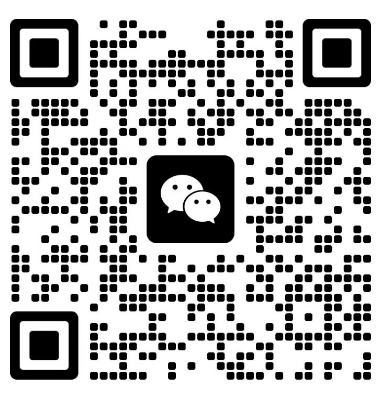英语的学习是一个需要练习,积累的过程,以下是小编收集整理的小学六年级英语语法题及答案大全,希望对大家有所帮助,欢迎下载。
小学六年级英语语法题及答案大全
重要语法点:
1. 情态动词can may must shall should
CAN 表示能力
表示允许,建议或请求许可
表示可能
May 表示请求或许可
表示可能或许
表示祝愿
引导的一般疑问句否定回答________________
Must 表示主观看法意为“必须绝对”
否定形式must not=mustn’t 意为“禁止不许”
表示肯定的推测
引导的一般疑问句,其否定回答为____________
Shall 表示征求对方意见意为“好不好,可以”
Should 表示劝告义务, 意为“应该”
2. 频度副词/时间副词
1. --- _________ does Tina go to see her grandparents?
--- Once a week.
A. When B. How many C. How often D. Why
2. He is a good student, but _________ he makes mistakes.
A. always B. usually C. sometimes D. often
3. 一般现在时
( )1. ___________you often go to school by bus?
A. Are B. is C. Do D. Does
( )2. --- Are you sure? --- _________.
A. Yes, I do. B. Yes, I am. C. No, I don't. D. That's right.
( ) 3. – _______Mr Li ______ Rose Garden School?
- Yes, he is.
A. Is……visiting B. Does……visit
C. Do……visit D. Does……visits
( )4. Beijing is our capital. Have you ________ yet?
A. been to there B. been there C. go to there D. go there
( )5. What do you usually do ________ Sundays?
A. about B. at C. in D. on
( )6. Some boys always _______ computer games very late at night.
A. play B. plays C. to play D. playing
( )7. Simon sometimes _______ his little brother English.
A. teach B. teaches C. taught D. has taught
( )8. John is a good student. He _______ tells a lie.
A. always B. often C. never D. usually
( )9. This boy is not honest. He _________ lies.
A. never says to B. always tell C. sometimes tells D. usually talk about
( )10. She is an honest girl and never _________ lies.
A. speaks B. says C. talks about D. tells
4. 一般过去时
1. He put up his coat, _________ he?
A. doesn't B. didn't C. did D. does
2. Which place __________ you __________ (visit) yesterday?
3. The firemen _______ a big fire in our housing estate last Monday.
A. pu
ut out B. puts out C. puts off D. put down
4. The firemen _________ a big fire last week.
A. put out B. put down C. put on D. put up
5. 一般将来时
1. There __________ a new film on TV tonight.
A. is going to have B. will have
C. is going to be D. has
2. There _______ a class meeting next week.
A. is B. will be C. be D. will
3. Where ______ they ______ their holidays next year?
A. do…spend B. will…spend C. are…spending D. have…spent
4. I _________ a picnic with my friends in the park next week.
A. have B. had C. will have D. am
6. 现在完成时
1. Where have you been______ Beijing?
A. in B. to C. / D. on
2. I have _________ been to Hong Kong. I will go there next week.
A. just B. yet C. already D. never
3. _________ you ever _________ America yet?
A. Have... been to B. Have...gone to C. Have... been in D. Have...gone in
4. -- Why not go to see the dolphin show with me?
-- Because I _________ it.
A. saw B. will see C. see D. have seen
5. My family and I _______ Hangzhou twice.
A. go B. have go C. have gone to D. have going
6. 时态综合练习. Fill in the blanks with the proper forms of the given verbs.
1. A: How much __________ (be) two bottles 0forangejuice?
B: Twenty yuan.
2. A: Who usually __________ (catch) fish in the river?
B: The fisherman.
3. John is a good boy and he never __________ (tell) lies.
4. Look, John and Mary __________ (ride) bicycles.
5. They __________ (have) an autumn outing tomorrow.
6.____________ your father often late for work? (be)
7.Look, it ____________ hard .(rain)
7. 介词的用法
1. Please tell me the story ____________ English.
A. in B. by C. at D. with
2. Let's help ____________ each other and learn ____________ each other.
A. from.., from B. /...from
C. with...from D. with.../
3. Shall we go to __________ U.S.A. ________
__ next weekend?
A./, / B. the, / C. /, at D. the, at
4. --- What would you like to have _______ dinner?
-- I'd like Io have fried vegetables _______ garlic.
A. for, by B. on, with C. for, with D. on, by
5. Thanksgiving Day is _________ the fourth Thursday of Nov. in America.
A. from B. on C. in D. at
6. Make a birthday card _________ one of your family members.
A. to B. at C. for D. of
7. I usually go shopping with my aunt _________ weekends.
A. at B. by C. in D. for
8. _________ a very cold morning, the boy was born in a poor family.
A. In B. On C. At D. From
9. You can buy some fish _______ the fish stall.
A. for B. in C. at D. on
10. I live far __________ school so I always __________ the underground to school.
一、名词复数
写出下列各词的复数 I(we) him(them) this (these)her (their) watch(watches) child (children) photo (photos) diary(diaries) day(days) foot(feet) books dresses teeth sheep boxes strawberries peaches sandwiches men women paper juice water milk rice tea
二、一般现在时:答案
写出下列动词的第三人称单数 drinks goes stays makes looks has passes carries comes watches plants flies studies brushes does teaches
用括号内动词的适当形式填空。
1. He often has (have) dinner at home.2. Daniel and Tommy are (be) in Class One.
3. We __don’t watch (not watch) TV on Monday.
4. Nick doesn’t go (not go) to the zoo on Sunday.
5. __Do__ they like (like) the World Cup?
6. What __do they often do__(do) on Saturdays?
7. Do__ your parents read (read) newspapers every day?
8. The girl __teaches (teach) us English on Sundays.
9. She and I __take (take) a walk together every evening.
10. There is__(be) some water in the bottle.11. Mike __likes__(like) cooking.
12. They __have__(have) the same hobby.13. My aunt looks(look) after her baby carefully.
14. You always __do (do) your homework well.15. I __am__(be) ill. I’m staying in bed.
16. She __goes__(go) to school from Monday to Friday.17. Liu Tao __does_(do) not like PE.
18. The child often __watches (watch) TV in the evening.
19. Su Hai and Su Yang __have__(have) eight lessons this term.
20. -What day __is__(be) it today?- It’s Saturday.
按照要求改写句子
1. Daniel doesn’t watch TV every evening.
2. Do you do your homework every day? Yes, I do.
3. Does she like milk? Yes, she does.
4. Does Amy like playing computer games? No, she doesn’t.
5. We don’t go to school every morning.
6. He doesn’t speak English very well.
7. What do you like in the park.
8. John comes from Canada.(对划线部分提问)
9. She is always a good student.(改为一般疑问句,作否定回答)
10. Simon and Daniel like going skating.(改为否定句)
改错(划出错误的地方,将正确的写在横线上)
1. Is your brother speak English?
2. Does he likes going fishing?
3. He likes play games after class.
4. Mr. Wu teachs us English.
5. She don’t do her homework on Sundays.
三、现在进行时:
写出下列动词的现在分词:play run swim make go like write ski read have
sing dance put see buy love
live take come get stop sit _____ begin shop
用所给的动词的正确形式填空:
1.The boy ( draw)a picture now.
2. Listen .Some girls ( sing)in the classroom .
3. My mother ( cook )some nice food now.
4. What you ( do ) now?
5. Look . They ( have) an English lesson .
6.They (not ,water) the flowers now.
7.Look! the girls (dance )in the classroom .
8.What is our granddaughter doing? She (listen ) to music.
9. It’s 5 o’clock now. We (have)supper now
10. Helen (wash )clothes? Yes ,she is .
句型转换:
1. They are doing housework .(分别改成一般疑问句和否定句)
2.The students are cleaning the classroom . ( 改一般疑问句并作肯定和否定回答)
3.I’m playing the football in the playground .(对划线部分进行提问)
4.Tom is reading books in his study . (对划线部分进行提问)
四、一般将来时:
填空。
1. 我打算明天和朋友去野炊。I have a picnic with my friends.
I have a picnic with my friends.
2. 下个星期一你打算去干嘛? 我想去打篮球。What next Monday? 3. 你妈妈这个周末去购物吗?是,她要去买一些水果。
your mother go shopping this ?
Yes, she . She buy some fruit.
4.你们打算什么时候见面。What time you meet?
改句子。
5. Nancy is going to go camping.(改否定)
Nancy going to go camping.
6.I’ll go and join them.(改否定)I go join them.
7. I’m going to get up at 6:30 tomorrow.(改一般疑问句)
to get up at 6:30 tomorrow?
8. We will meet at the bus stop at 10:30.(改一般疑问句)
meet at the bus stop at 10:30.
9. She is going to listen to music after school.(划线部分提问)
she after school?
10. My father and mother are going to see a play the day after tomorrow.(同上)
going to see a play the day after tomorrow.
用所给词的适当形式填空。
11. Today is a sunny day. We (have) a picnic this afternoon.
12. My brother (go) to Shanghai next week.
13. Tom often (go) to school on foot. But today is rain. He (go) to school by bike.
14. What do you usually do at weekends? I usually (watch) TV and (catch) insects?
15. It’s Friday today. What she (do) this weekend? She (watch) TV and (catch) insects.
16. What (d0) you do last Sunday? I (pick) apples on a farm. What (do) next Sunday? I (milk) cows.
17. Mary (visit) her grandparents tomorrow.
18. Liu Tao (fly) kites in the playground yesterday.
19. David (give) a puppet show next Monday.
20. I (plan) for my study now
五、一般过去时:
写出下列动词的过去式
is\am fly plant are
drink play go make
does dance worry ask
taste eat draw put
throw kick pass do
用be动词的适当形式填空
1. I at school just now.
2. He at the camp last week.
3. We students two years ago.
4. They on the farm a moment ago.
5. Yang Ling eleven years old last year.
6. There an apple on the plate yesterday.
7. There some milk in the fridge on Sunday.
8. The mobile phone on the sofa yesterday evening.
句型转换
1. It was exciting.
否定句:
一般疑问句:
肯、否定回答:
2. All the students were very excited.
否定句:
一般疑问句:
肯、否定回答:
3. They were in his pocket.
否定句:
一般疑问句:
肯、否定回答:
用be动词的适当形式填空
1. I an English teacher now.
2. She happy yesterday.
3. They glad to see each other last month.
4. Helen and Nancy good friends.
5. The little dog two years old this year.
6. Look, there lots of grapes here.
7. There a sign on the chair on Monday..
8. Today the second of June. Yesterday the first of June. It Children’s Day. All the students very excited.
句型转换
1. There was a car in front of the house just now.
否定句:
一般疑问句:

